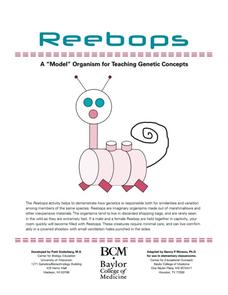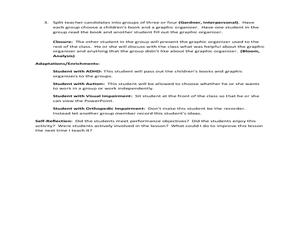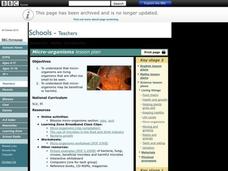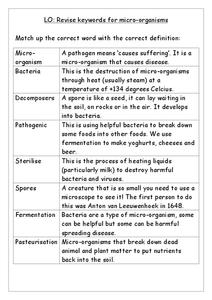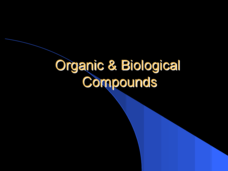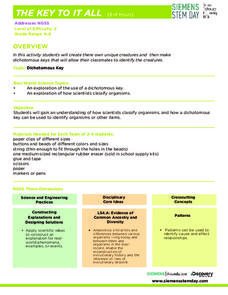Curated OER
Body Organs: Matching
In this body organs worksheet, students match body organs with their functions. Students complete 19 matches total on this body organs worksheet.
Baylor College
Reebops: A “Model” Organism for Teaching Genetic Concepts
In a sweet simulation, junior geneticists examine the chromosomes of a fictitious Reebop marshmallow animal, combine chromosomes to produce offspring, and then make a model of the resulting Reebop baby. Phenotypes include number of...
Curriculum Corner
Native American Literature
Celebrate and honor Native American culture with this set of graphic organizers that showcases literature like The Girl Who Loved Wild Horses and A Boy Called Slow as well as three other Native American literature books. Learners compare...
Curated OER
Graphic Organizer Lesson
Students investigate how to use graphic organizers. In this literary elements lesson, students are introduced to several types of graphic organizers and their purpose. Students read a book of their choice and complete a graphic organizer...
Curated OER
Breaking News English: Organ Donors
In this organ donors worksheet, learners read the article, answer true and false questions, complete synonym matching, complete phrase matching, complete a gap fill, answer short answer questions, answer discussion questions, write, and...
Curated OER
Micro-Organisms
Students investigate microscopic life by viewing video clips. In this organisms instructional activity, students view photographs and video clips on the internet of micro-organisms and discuss the harms and benefits of the creatures. ...
Curated OER
Major Organic Acids in Fruits
Students investigate the organic acids present in a variety of juices. In this organic acids lesson plan, students read about the effects of organic acids in juices. They use paper chromatography to separate out the acids present in a...
Curated OER
Micro-Organisms
In this identifying the definitions of micro-organisms activity, students match the correct key words with the correct definitions. Students match 8 answers.
Curated OER
Animal Organs and the Study of Reproduction, Embryology and Cancer
Students examine organs from dogs and cats to study reproduction, embryology, and the identification of cancer. They record their observations at both the gross and microscopic levels. They present their information to the class.
Curated OER
Why Eat Organic?
Ninth graders explore the concept of organic eating. For this environmental stewardship lesson, 9th graders compare and contrast organic foods with conventional foods and discuss the benefits of eating organic foods.
Curated OER
Micro-Organisms
Learners investigate micro-organisms with an on line activity. In this micro-organism on line lesson plan, students identify bacteria, viruses and fungi projected onto a white board. Learners work in groups and use a computer and an on...
Curated OER
Using Spatial Organization in Writing
In this using spatial organization in writing worksheet, students read the explanation of spatial organization, interactively explore a photograph, record their impressions, compare various impressions, then write an essay telling an...
Curated OER
Web Graphic Organizer
In this science/Arctic worksheet, learners utilize a graphic organizer to plan out their Arctic report/project by placing key words on each line to help them organize their thoughts.
Curated OER
Organic and Biological Compounds
Carbon as a building block for organic compounds is demonstrated by diagrams and facts for its bonding style. Saturated and unstaturated hydrocarbons are detailed and facts about biological compounds such as proteins, nucleic acids,...
Science 4 Inquiry
The Classification of Living Things
It's a classification sensation! Demystify why we classify using an inquiry activity that helps your class sort things out. Groups begin by classifying a variety of shoes before they research organisms and design their own dichotomous...
Curated OER
Graphic Organizer: Research Note Taking Made Easy
What do you wonder about bats? Use an open-ended question like this to engage your class and interest them in an upcoming research project. There's a list of example questions to offer or suggest regarding bats, but see what they can...
Discovery Education
The Key to It All
Which characteristics make organisms unique? Dichotomous keys simplify the process of classifying organisms by focusing on these unique characteristics. Young scholars learn how to use the dichotomous key flow chart by creating their own...
LABScI
Taxonomy: Who is in My family?
Find similarities in seemingly unlike organisms. The second instructional activity in a series of 12 builds the concept of a taxonomy and explores the use of a dichotomous key. Learners begin in part one by attempting to group a set of...
NOAA
Deep-Sea Ecosystems – Life is Weird!
A pool of brine in the deep sea can be up to four times as salty as the surrounding sea water. The deep sea ecosystem relies on chemosynthesis and the organisms that live there are often strange to us. The lesson focuses on researching...
National Institute of Open Schooling
Alcohols, Phenols and Ethers
Classes continue their study of organic compounds in a detailed lesson covering alcohols, phenols, and ethers. Naming these compounds, classifying them, and describing their preparation and use are some of the topics covered. Through...
Nancy Fetzer's Literacy Connections
Expository Paragraph
Upper elementary and middle school writers learn how to craft an expository paragraph by following the six steps detailed in a 48-page instructional guide. Learners learn how to write six different types of informational paragraphs: to...
Kenan Fellows
The Effects of Environmental Conditions on Aquatic Organisms
What kind of experiment can your class do to how observe the environment effects on organisms? Groups design and conduct lab experiments to learn about the effects of the environment on aquatic organisms. Based upon knowledge gained from...
Michigan State University
In Search of Life
Explore the habitats around you with an activity that takes kids out of the classroom to learn about the local variety of habitats and the living things that call them home. In small groups, scholars investigate their surroundings,...
Curated OER
Vocabulary Charts
Help your kids learn their vocabulary with a lesson plan and graphic organizer. After receiving a list of new vocabulary words, learners look up the definitions in dictionaries and fill in the worksheet. Additionally, they include a...
Other popular searches
- Classifying Organisms
- Classification of Organisms
- Basic Needs of Organisms
- Aerobic Organisms
- Extinct Organisms
- Genetically Modified Organisms
- Freshwater Organisms
- Relationships Among Organisms
- Interdependence Organisms
- Extinction of Organisms
- Pathogenic Organism
- Multicellular Organisms



